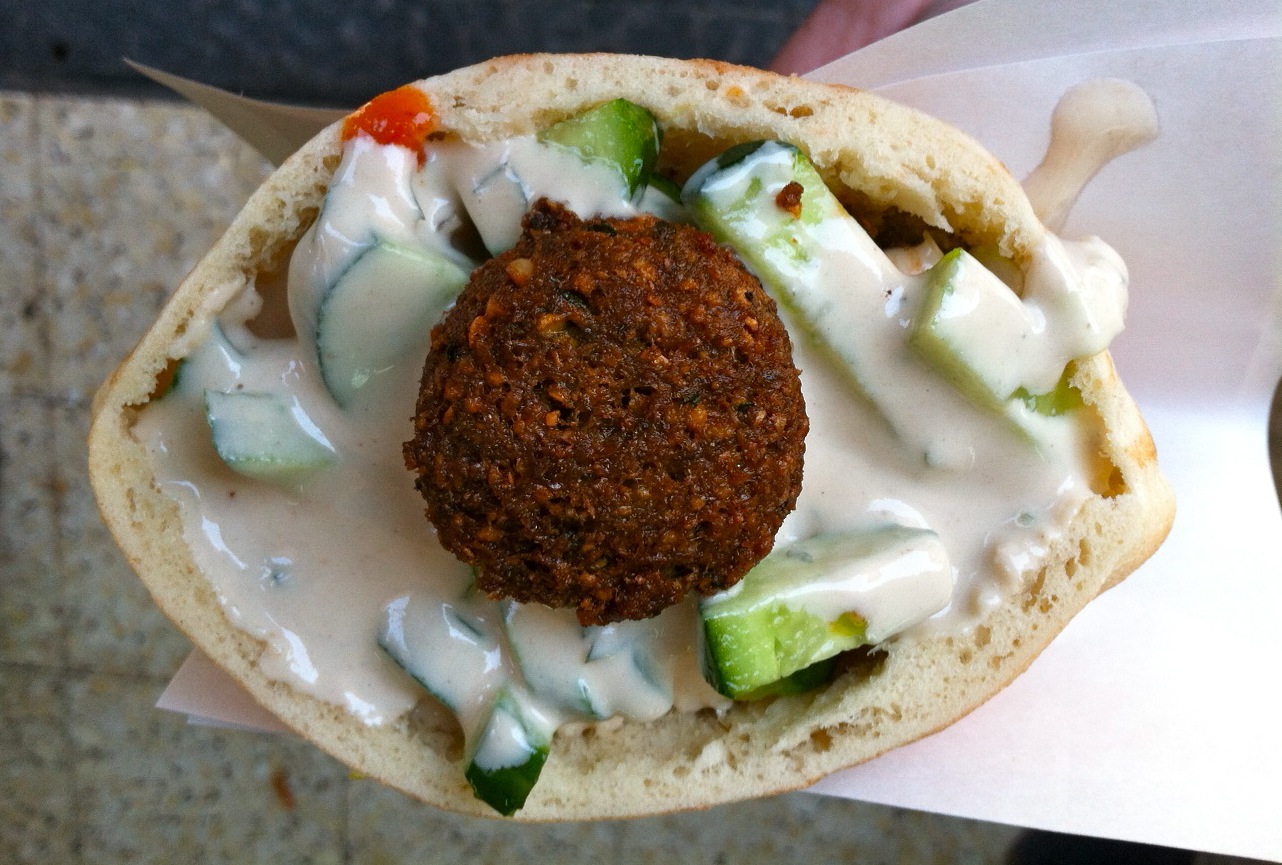Welcome to the Sisterhood- From Israel to India

Having grown up in a loud (often misconstrued as aggressive) Punjabi household, food has become an important part of the way I bond with people and foster ties with the places I visit. Home to me has always been characterized by the aroma of preparations of the next meal wafting through it before the previous one has found its way onto to the dining table (let alone into everyone’s stomach).
Stories of food, food sharing, the method of its preparation and the manner in which it is consumed, are all palanquin bearers of my Indian, and more specifically, Punjabi identity. Politics, in homes like mine, start in, but do not remain confined to, the kitchen where recipes and every home’s own secret blend of spices to make the perfect curry is being discussed. Homes like mine do not just exist in India but also in the not so far off biblical land of Israel.
In an attempt to understand local culture during my recent visit to Israel, I found myself learning as much in restaurants and on streets about peace and conflict as I did in a University classroom. Given its massive immigrant population and constantly varying demography, Israeli cuisine is ever-changing and bears influence of food cultures from around the world. Those who made Aliyah (the act of immigrating to Israel) carried back with them their food habits making the food experience in Israel a truly global one.
From eating immaculately cooked golden buttered shrimp and mussels in Jaffa, to sampling wines in the Golan and enjoying an opportunity to devour a mix of Moroccan and Arab cuisine in the desert in Be’er Sheva- Israel’s landscape offered as much variety as its food culture. In the Arab quarters of the holy city of Jerusalem I discovered an unexpected twist on rumali roles. The spicy aroma of the zatar being spread on the rumali roti with a drizzle of olive oil and chunks of goats cheese thrown on to it and rolled to perfection reminded me of the khopchas of Delhi serving their daily specials.
Here, evening tea and conversation was often interrupted by the seemingly unending bout of intense sneezes and coughs from the spices wafting through the air as women cooked dinner with a cocktail of spices. This teleported me to my loud drawing room where cha (chai) sessions would experience the intermission of a similar experience of the “Kyo (ghee) da tadka” (healthy addition to most Punjabi lentil preparations) every evening.
In bars and on the board walk, talking politics is impliedly banned. The occasional noise of the IDF (Israeli Defense Forces) and civilian choppers would prevent me from lulling in Orwellian thoughts of finding strength in ignorance in this beautiful country. The echoing sounds of the church bells ringing, the call for prayer from the mosque, tinkling wind chimes in the local souvenir shops and the melody of local musicians by the port created a beautiful symphony to which I would savor a small slice of New-York cheesecake while sipping an expresso and enjoying the view of the sun diving into the sea.
Evenings would be marked by hard decisions of what to have for the last meal of the day- flavorful kebabs complimented by Arab hospitality and an unending supply of free lemonade to ease the heat of the food or simple kosher grilled fish with a smooth avocado salad?
Identity was an important ingredient in each dish in Israel as it was in India. As I sampled hot seasoned red wine with brandy and oranges in a small bar in Jaffa- Tel aviv I was struck by the similarity between the two countries. It didn’t take long for me to be welcomed into the sisterhood. Israel and Israeli cuisine, much like India, had the power to stimulate a pleasurable multi-sensory experience beyond the realm of taste buds.
Food was charged, in this part of the world, as much as it was in mine. Familiar wars surrounding the best butter-chicken in my city- Delhi, quickly translated into distant and unfamiliar culinary battles surrounding who made the best Falafel, hummus and Shakshuka- the Lebanese, the Palestinians or the Israelis? Within Israel, questions surrounding who would be crowned Masterchef of Falafel made for important dinner time conversation. I often ended a Kosher meal with an Arab dessert and enjoyed an Arab meal with kosher wine. Food was a neglected vehicle of peace and reconciliation in this country and dinner tables were sidelined mediation circles.



